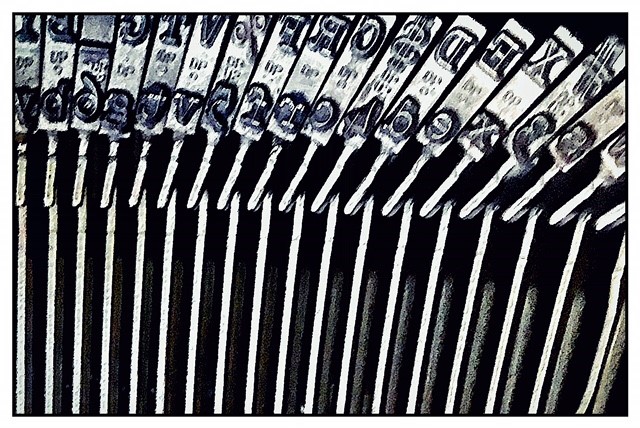No matter how quickly our technologies evolve, or how fast our processors process, we still rely on ancient methods to make our way through each day.
Just yesterday I wrote in my journal, printed out a card to a loved one, and tapped a text message to my daughter. I started a letter to a friend, composed a forceful email to a pharmaceutical company, and contributed to ongoing dialogue with a curious collection of sensitive souls.
I scribbled out a couple of lines to a poem, added onto the grocery list, jotted down an upcoming appointment in my agenda, and recorded a client concern warranting further investigation.
I wrote with a pencil in a notebook and used a pen on a preprinted form. I also employed a laptop, then a desktop computer, and made use of a few apps on my mobile device.
Through it all, my daily communication — regardless of the format, font or function — was done using the same standard 26 letters and 10 digits that have been used for centuries, along with a handful of punctuation marks for proper order.
In a society that wants to do everything differently than we have on the past, we are stuck on such a simple practice. My country is bilingual; both languages (English and French) use the same characters.
In my life as a writer I have used all the traditional hand-held writing instruments from crayon to fountain pen, and mechanical devices including typewriter, mainframe computer, tablets and my phone.
But the alphabet has not changed in my lifetime, nor that of my father’s, or my father’s father.
The alphabet is old, its roots dating back to 2700 BC. Since the early days of hieroglyphics, we have used similar symbols to show love and anger, and to emphasize sadness or fear. Our wants, our struggles, and our fantasies are illustrated as they always have been.
The letters remain the same. A combination of curves and lines, an R is always an r, the S is the same, again and again, like an A is an a: upper case or lower. We have barely even altered how the letters are used. Today’s Apple keyboards are essentially laid out the same as the keys on yesteryear’s Underwood.
Even the meanings of words can change, but not how they are produced. Words keep the world moving, and learning; they maintain order or spell out anarchy. And we understand. At the turn of the millennium, the printing press was named the greatest invention of all time because of its ability to help spread the written word.
We use the written word more than we ever have. Yes, the format has changed (again) but it is still both our primary form of communication and the essential instrument in recording history.
Years ago, just as this whole digital thing was really catching on, as personal computer sales began to dramatically increase, there was talk about a paperless society. Oh how wrong they were. Newspaper and magazine sales (and production) have declined, but we still shuffle an awful lot of paper at the office.
While we don’t mail letters like we used to, yet our email inboxes continue to fill up.
It’s only words.
We can boast about how society has changed or evolved (even improved), but the foundation of communication are the letters that grew from symbols once scratched out on the walls of caves.
How simple; how profound; how enduring.
©2017 j.g. lewis

Leave a Reply